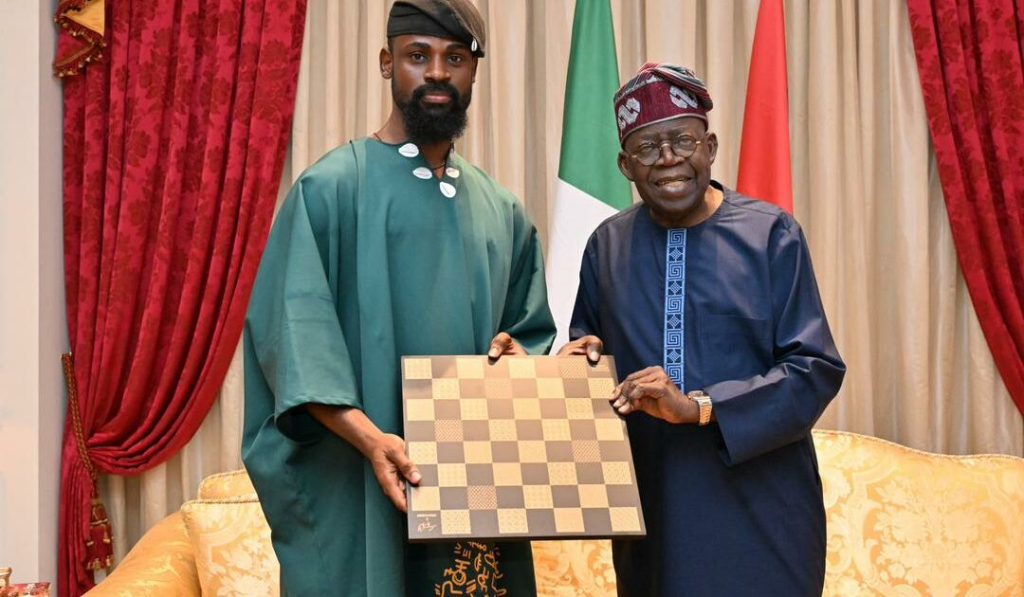Tunde Onakoya, the Nigerian chess champion and founder of Chess in Slums Africa, has responded to the criticism following his recent meeting with President Bola Tinubu, emphasizing that his focus remains firmly on youth empowerment and not political affiliation. Onakoya, recently honored by New York City and a Guinness World Record holder, clarified that being recognized by the Nigerian president was neither a criminal act nor a political endorsement. He highlighted his history of declining awards and found comparisons to individuals receiving accolades from countries implicated in war crimes to be absurd. The core of his message was the unwavering dedication of Chess in Slums Africa to its mission, irrespective of political dynamics.
Onakoya robustly defended Chess in Slums Africa against accusations that its relevance hinges on poor governance. He argued that the organization’s impact extends beyond simply providing charity; it uses chess as a cognitive development tool, enhancing academic outcomes for children who have fallen through societal cracks. He described the organization’s work as restoring dignity and providing educational opportunities, emphasizing the importance of critical thinking skills and formal or vocational education for these children. Onakoya reinforced his commitment to utilizing his influence and resources, gained through consultations with international educational institutions and tech companies, to serve these marginalized children. He reiterated that his visit to the president was not an endorsement, stating he would continue to engage with various figures to further his mission.
Addressing the criticism directly, Onakoya acknowledged the varied public reactions, ranging from anger and hate to love and applause, accepting them as valid responses. He underscored the significance of his Guinness World Record achievement, emphasizing that being recognized by his own country’s highest office was not a political statement but a recognition of this achievement. He further clarified that this recognition was not a national honour, further distancing it from political implications. Onakoya highlighted his history of declining awards, underscoring his selective approach towards such recognitions and differentiating himself from those accepting awards from countries with questionable human rights records. He unequivocally stated his disinterest in partisan politics due to the sensitive nature of his work with children and pledged to resign his CEO position should his political stance ever change.
Onakoya further detailed the organization’s operational model and impact, emphasizing its reliance on partnerships and community support, rather than international grants. He highlighted the ongoing collaboration with the Lagos State Government to rehabilitate street children in areas like Jakande and Isale Eko, showcasing the tangible impact of their work beyond the symbolic gestures often seen in social media. He stressed that the organization’s focus is not on mere charity but on empowering children with the cognitive skills and education they need to become self-sufficient and valuable members of society. Onakoya emphasized the long-term vision of Chess in Slums Africa: to establish a Chess/STEM institute that will provide thousands of children with educational opportunities and a chance to dream again.
Onakoya’s response also addressed the nature of public perception versus personal character. He urged observers not to conflate social media portrayals with his true intentions, emphasizing his decade-long commitment to his work as evidence of his genuine character. He reiterated that his focus remained fixed on the long-term goal of building the Chess/STEM institute, a project he believed would ultimately supersede any current controversies or differing opinions. He maintains that his work transcends political divides and focuses on the needs of vulnerable children. He encouraged collective efforts in addressing the societal issues faced by these children, emphasizing the importance of collaboration with the government to scale the impact and institutionalize the solutions. This, he argued, would move the focus from his individual efforts towards a sustainable system-level approach.
In conclusion, Onakoya’s response was a comprehensive defense of his actions and motivations. He emphasized the apolitical nature of his work with Chess in Slums Africa, highlighting the organization’s focus on empowering marginalized children through education and cognitive development. He acknowledged and accepted the diverse public reactions to his meeting with President Tinubu, while simultaneously reinforcing his commitment to his long-term vision of creating a lasting impact on the lives of vulnerable children. His message underscored the importance of looking beyond social media narratives and recognizing the genuine, sustained efforts being made to uplift communities and empower the next generation.














